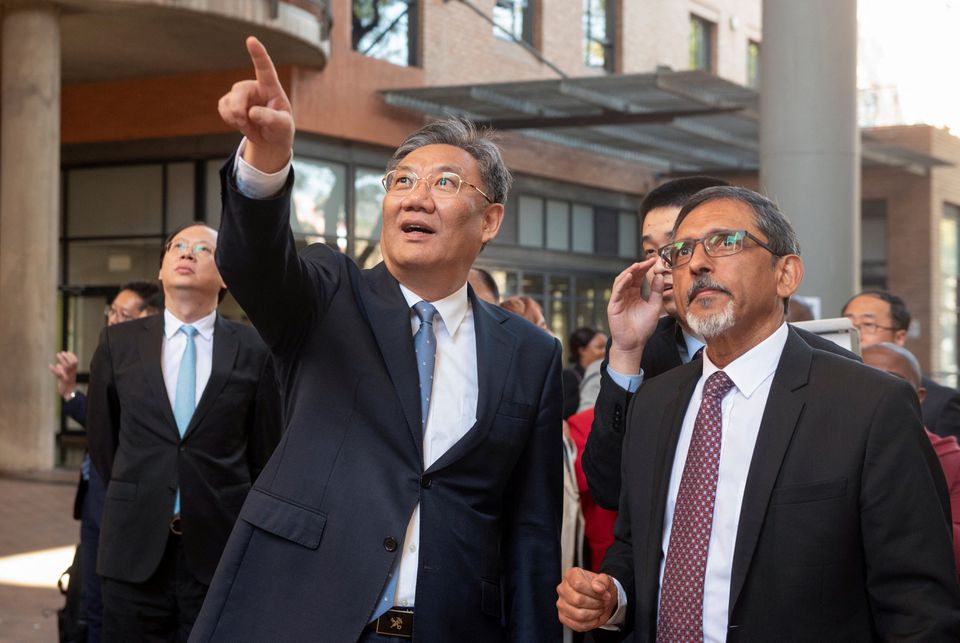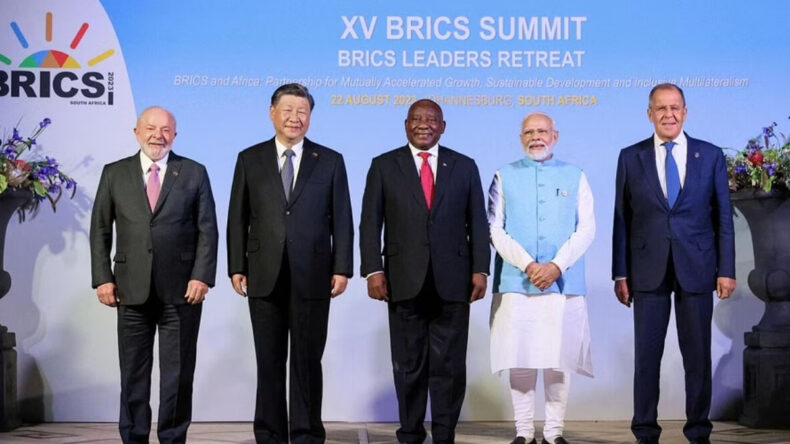The 15th heads of state and government summit of the major emerging economies known as BRICS—Brazil, Russia, India, China, and South Africa—will take place in Johannesburg from August 22 to August 24. Pre-Summit discussions reveal that there are a few distinctive and important things to watch out for. One of them is the BRICS expansion, which will be the subject of an extensive discussion at the summit.
What is BRICS?
In a 2001 research study that highlighted the economic potential of Brazil, Russia, India, and China, then-Goldman Sachs head economist Jim O’Neill introduced the abbreviation BRIC, which at first did not include South Africa.
In order to give its members a platform to contest a global system controlled by the United States and its Western allies, the organization was established as an unofficial club in 2009. The organization was started by Russia.
The group is not an official multinational organization, like the United Nations, World Bank, or Organisation of the Petroleum Exporting Countries (OPEC). At the annual conference of the leaders of state and government of the member nations, each country assumes a rotating one-year presidency of the group.
Members of BRICS
The organization’s original founding members are China, Brazil, Russia, and India. South Africa, the group’s smallest member in terms of both economic weight and population, benefited first from the bloc’s growth in 2010 when it was renamed the BRICS. Together, the nations make up almost 40% of the world’s population and 25% of the world’s economy.
In addition to geopolitics, the group’s core interests include development, international trade expansion, and economic cooperation. Collectively, the group decides on actions. The G20, an organization of major economies, includes all of the BRICS countries.

Which Nations want to join BRICS? And why?
More than 40 countries, including Iran, Saudi Arabia, the United Arab Emirates, Argentina, Algeria, Bolivia, Ecuador, Egypt, Ethiopia, Cuba, the Democratic Republic of the Congo, Comoros, Gabon, and Kazakhstan, have reportedly expressed interest in attending the summit, which will be held in South Africa in 2024.
They view BRICS as an alternative to international organizations that they perceive to be dominated by conventional Western powers and believe that joining the organization will open doors to benefits such as increased trade and investment as well as development money.
The COVID-19 epidemic, during which wealthy nations accumulated vaccines that could have saved lives, increased developing countries’ dissatisfaction with the global framework.
Iran, which is home to over 25% of the oil reserves in the Middle East, expressed its desire for the procedure for new membership to be decided “at the earliest.” Saudi Arabia, a major producer of oil, was one of more than a dozen nations present at “Friends of BRICS” talks in Cape Town in June. Brazil and Russia have backed its decision to join the BRICS.
Argentina said that China has formally supported its candidature to join the organisation in July 2022. Ethiopia, whose economy is among the fastest-growing in Africa, said in June that it had applied to join the organisation. The country would continue to work with institutions that might advance its interests abroad, according to a spokesman for the foreign ministry.
President Luis Arce of Bolivia, who has indicated interest in joining the BRICS, is anticipated to attend the conference.Its government announced in July that it was resolute to reduce reliance on the U.S. dollar for international trade and would instead turn to the Chinese yuan, in line with the stated goal of the BRICS leaders to lessen reliance on the U.S. currency.
Algeria declared in July that it has submitted a proposal to join the BRICS and to become a stakeholder in the New Development Bank, or BRICS Bank. The oil and gas-rich country of North Africa is attempting to diversify its economy and forge alliances with other countries, including China.
Being a member of the BRICS brings a sense of equality across nations. Because of the grouping’s flat hierarchy, all members have an equal voice and consensus on all issues, and any decision that is made is the best common minimum that all member countries can agree on.
The process will undoubtedly get more sophisticated and difficult with the addition of additional participants, but the decisions made will also be more in line with the preferences of emerging markets and economies.













